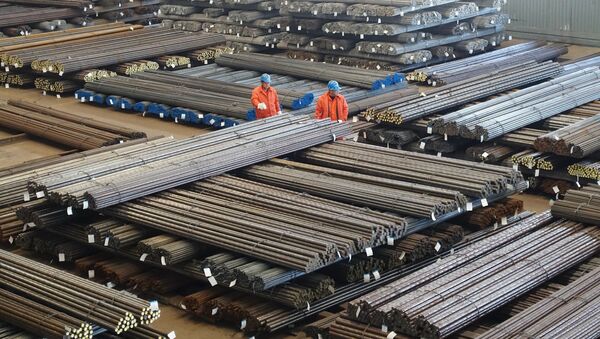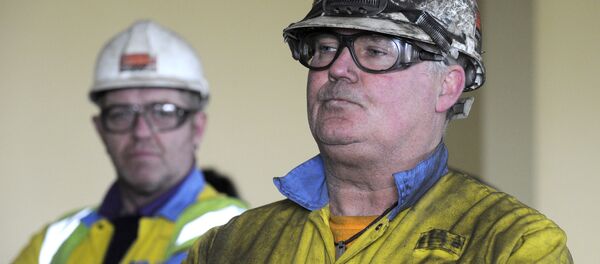Baosteel Group is China’s second largest steel maker, and Wuhan Iron and Steel Group (often called Wisco) is the sixth largest. On Sunday they filed stock exchange reports announcing their intention to merge and restructure their enterprise.
The merger is being encouraged by the Chinese government, which wants to increase competitiveness in industries where a glut of production is causing particularly low prices. According to SCMP, dozens of state-owned steel mills have been under growing pressure to consolidate and eradicate uncompetitive production lines.
In February the Chinese government said it wants to cut 100-150 million tons of steel capacity, and 500 million tons of coal production over the next three to five years. However, the plan has made slow progress because of concerns over the consequences of mass job losses and lost tax revenues.
On Sunday, China revised its goals and announced it aims to cut only 45 million tons of steel capacity and 280 million tons of coal production.
With a combined output of 62.72 million tons per year, he said the new company could also take second place in the world arena. The only bigger producer will be steelmaking corporation ArcelorMittal, registered in Luxembourg, which manufactures 97.14 million tons per year.
"The Chinese leadership has two aims for this merger. The first is to make a giant that can compete with the world number one steel producer, the Luxembourg ArcelorMittal. In this way it can exert pressure and compete, at least in terms of output."
"The Chinese government's second goal is to reduce steel processing. This year they are going to cut production by 45 million tons and by 2020 they want to cut production to 150 million tons. At the moment, China's production capacity is 1.2 billion tons a year, which means the market is crowded for Chinese steel companies," Tratas said.
China's excess steel production in China has led European producers, particularly in the UK, to blame Beijing for dumping its excess steel production and undercutting domestic producers there.
However, in Beijing's view the problem of low prices for steel should be attributed to a disbalance in the world market because of a decline in manufacturing and falling oil prices.
Mikhail Belyaev from the Institute of Stock Market and Management told Sputnik that the merger is a move from China to defuse a potential confrontation with the West about the issue.
"It's a step away from a 'steel war' with the West," Belyaev explained.
"However, it can't be ruled out that the country changes its tactics when it suits, because on the world stage, nobody has ended competition."
"In this case, the country is doing things a softer way. For China steel is a state resource, and that means the possibility of acting on one or another representative of the steel industry," Belyaev said.




